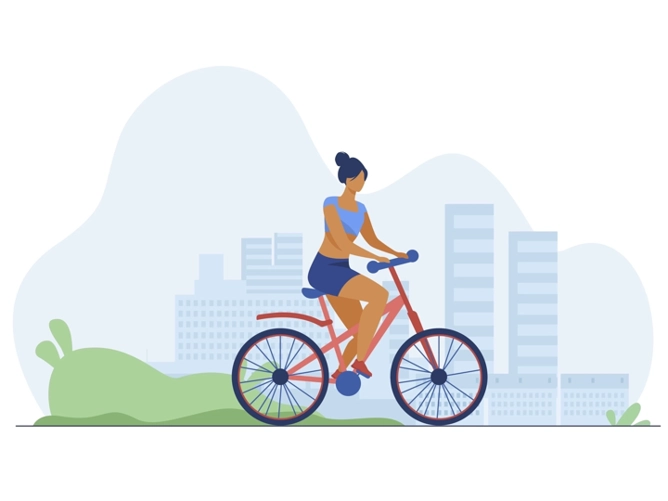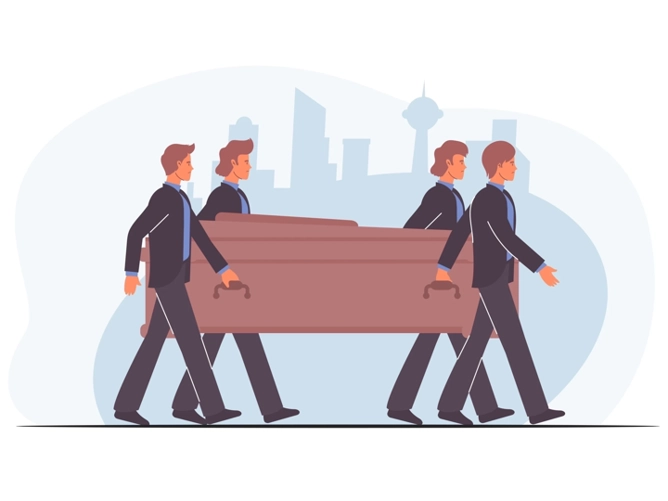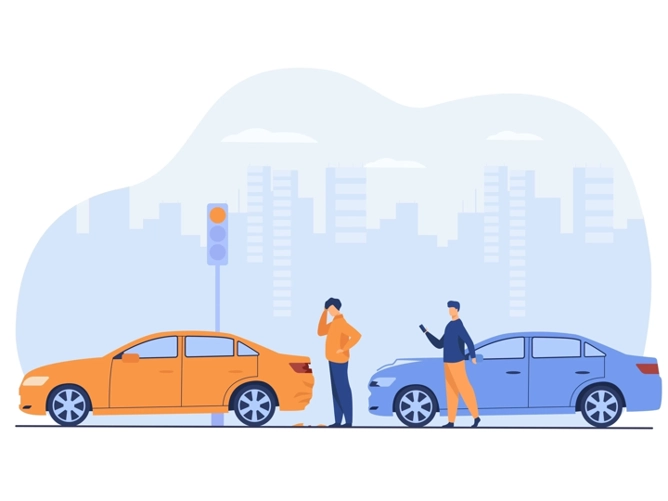
Cycling in Germany – All You Need to Know [2026] - Live In Germany
Germany can be called a “nation of cycle-riders”. Although Germany is a globally reputed manufacturer of cars, the German people love to ride a cycle. According to Statistics, the population of Germany is about 82 million, while 81 million bikes are recorded to be owned in Germany. This concludes that each resident of Germany owns approx. a cycle or bike. German people prefer to use the bike as their common mode of transportation. For doing groceries, going to nearby places, and travelling to offices, universities, or schools, a bike is preferably used in Germany.
Cycling in Germany is purposely common to avoid traffic jams. But Germany has emerged as a cycling-friendly country after developing more than 200 long-distance cycling routes webbed across the nation. Cycling in Germany is familiar as a holiday fun on these developed and facilitated cycling routes in Germany.
Riding a cycle itself is a genuinely healthy and lively activity. Thanks to the latest healthcare research and studies, the abundant benefits of cycling are no more hidden from anyone. Cycling provides physical as well as mental health benefits. Habitual cycling makes you active, and fresh, upgrade your mood and decreases depression. Along with that, it beneficially supports your cardiac health and improves your body’s strength, flexibility, and coordinating balances.
Someone living in Germany cannot possibly avoid that “two-wheeled revolution”. If you are aiming to use a cycle for common commuting in Germany, it is necessary for you to learn some basic and important rules and regulations about cycling in Germany.
Cycling in Germany: Rules and Regulations
Bicycle requirements for a German road-worthy bike
The bike you are going to ride in Germany should be compatible ad well-equipped as a legally road-worthy bike requirement for Cycling in Germany.
According to ADCF (Allgemeiner Deutscher Fahrrad-Club), the German Bicycle Association, the bike is legally permitted for cycling in Germany after meeting the following requirements:
Front and Back Lights
A bike should have StraBenverkehrs-Zulassungs-Ordnung (StVZO) approved non-blinking front light and backlight. The front light should be white and the backlight should be red. While purchasing the lights for your cycle, don’t forget to make sure, that you are buying StVZO’s approved ones.
Reflectors
Your bike or cycle should have a white reflector at the front and a red-color reflector at the back of the cycle. Both pedals should have two yellow reflectors. Both tires must be integrated with reflector stripes, preferably orange. Or you can have orange reflectors on the spokes of each wheel.
Bell
Your cycle should be equipped with a loud functioning bell.
Brakes
Your cycle must be equipped with two independently functioning brakes with front and back wheels.
Rules To Follow for Cycling in Germany
No cycling, if you are drunk or have sleep-inducing medicines
It is one of the most important rules for cycle riders in Germany. You are legally not allowed to ride a bike or cycle if you are having sedating medicines, drinks, or drugs in your bloodstream.
Never opt for cycling in Germany in such conditions, even at a lower speed. If you, get caught by chance by the police, you can have criminal charges on your record.
Do not use a phone, while cycling
Never use or even hold your phone while riding a cycle. It is considered an offense and you would have to pay a fine for that act.
If you are using a phone for a directions guide, install a bicycle cell phone holder on your bike.
Wearing Headphones is not allowed
For the purpose that a bike rider must be able to hear the traffic, it is not allowed to wear headphones while cycling in Germany.
Ride the cycle in the dedicated Bicycle Lane
It is recommended to cycle in the bicycle lane, to avoid any accidents or getting a fine.
A German Bicycle lane:
- Has a curb, that separates it from the main road
- appears as the pavement’s extension but with a different pattern/color of paving
- marked with a bicycle diagram
Keep towards the right
Cycling way in Germany is directed towards the right-hand side. If a road has no separate Bicycle lane, keep your bike near the edge of the road.
Always keep a distance of arm’s length from the parked cars.
Avoid going side by side with other bike riders
If you are cycling in a dedicated Bicycle lane, always ride in a single. Never go side by side.
No cycling on Highways and Motorways in Germany
It is dangerous and prohibited to ride a bike on highways (Autobahns) or motorways in Germany. For a long-distance cycling trip use dedicated cycling routes in Germany.
One person on a Bike
You are not allowed to have a ride with your special friend sitting with you on the same bike. German police (Ordungsamt) allow only a single person to ride on a single bike.
One Hand or Freehand cycling
Cycling with one hand or other cool styles of cycling is legally forbidden in Germany.
Carrying heavy objects on the cycle
Overloading or carrying stuff on your bike that can cause obstacles in traffic is not allowed.
Bicycle parking
You can park your bike anywhere in Germany, excluding the prohibited zone. There are bicycle stands normally found in Germany, and you can park your bike there safely. Take note; never park your bike in a place where it can cause an obstruction. It is against the traffic rules.
Wearing a Helmet
It depends on you. You can wear a helmet while cycling in Germany if you want for safety purposes. The law does not restrict wearing a helmet for cycle riders.
Age restrictions for cycling in Germany
Children of age 10 and older are allowed to ride cycles on roads or in bicycle lanes, just like an adult. They need to follow all the traffic rules and safety rules as adults.
If your child is attending school in Germany, there is a learning opportunity for them. Schools in Germany offer a bicycle training course. There are traffic schools in German cities to assist children in the safe practice of cycling.
Turning Road rules for Cycling in Germany
There is a quick guide to help you learn to take turns while cycling in Germany.
Turning right
Indicate your turn toward the right by giving a hand signal using your right hand.
On the perpendicular road, before turning first look for the pedestrians, if someone is crossing the road, you have to give them a priority.
Turning left
It could be a bit tricky. Indicate toward the left using a left-hand signal. You should safely cycle across the street, before taking a turn toward the left.
Signal indication before stopping
If you have to stop your cycle unexpectedly, make sure to give a stop indication. For stopping, the hand signal is given by extending one arm downward.
Traffic Fines for Avoiding Traffic Rules
- For wearing headphones or other sound devices while riding a bike: 15 Euros
- For holding a phone in your hands or using any other device while riding a bike: 55 Euros
- For not following the blue bicycle sign and not riding your cycle in the dedicated cycle area: 20 Euros
- For wrong-direction cycling: 20 Euros
- For cycling side by side in the bicycle lane with other users: 20 Euros
- For not giving a priority to pedestrians, when there is a green signal for pedestrians: 80 Euros or a point reduction in driver’s license.
- For fast cycling and causing endanger: 25 Euros
- For avoiding red signals and running away while cycling in Germany: 60-180 Euros
- For cycling while being affected by drugs: A blood alcohol level above 0.5% can burden you with a fine of 800 – 3700 Euros.
Bicycle license in Germany
For a traditional bicycle, a license is not required. If you have a pedelec (pedal electric cycle) with having motor of more than 250 watts and have a speed of more than 25 km per hour, you are required to get yourself a small motorcycle license (class AM).
Understanding Common Traffic Signs for Cycling in Germany
What is a Pedelec
Pedelecs (pedal electric cycles) have an electric motor as support, which works along with your pedaling
Pedelecs (maximum speed of 25 km per hour)
It is Legally considered as bicycles with the motor of up to 250 watt and it can only be ridden at the bicycle lane.
Pedelecs (maximum speed of 45 km per hour)
It is legally considered a small motorcycle and can only be driven with an AM driving license. Insurance is necessary for it. You can only drive it on the roads and the bicycle lane where a moped is allowed. Moreover, a helmet is also mandatory.
What is a e-Bike
E-bike or electronic bike is equipped with an electric motor. It is a motorized cycle and not considered a bicycle as required no pedaling.
e-Bike (maximum speed of 25 km per hour)
It is considered as moped and can only be driven with M license (Mofabescheinigung). You need proper insurance for it and helmet is also mandatory.
e-Bike (maximum speed of 45 km per hour)
Similar to pedelecs with 45km speed, it is legally considered a small motorcycle and you can only ride it with an AM driving license. Insurance is necessary for it. You can only drive it on the roads and the bicycle lane where a moped is allowed. Moreover, a helmet is also mandatory.
Insurance rules for Cycling in Germany
Personal Liability Insurance
Every cyclist in Germany must need to have personal liability Insurance. It can cover the cost if you accidentally hit or harm someone physically or damage their property. The damage could cost you a thousand to millions of Euros, so it is undeniably crucial to have personal liability insurance if you are cycling in Germany. The best part is, it is easily affordable, you have to pay 4.99 Euros per month, and it can cover the damage to about 30 million Euros for you.
**
Bike Theft Insurance
Beware; your cycle can be stolen in Germany also. Have your bike insurance to cover the damage. It costs only 2.99 Euros per month.
What to do if an accident happens?
- Call 112 to call an ambulance
- Call 110 for seeking help from the Police
- It is advised to take pictures to secure the scene.
Conclusion
Cycling is an exciting habit that is undeniably affordable and healthy as well. It is recommended to know every possible detail regarding rules and regulations for cycling in Germany to make the experience more exciting and safe. Follow the traffic rules and have a good understanding of signs and signals to avoid any mishaps.

Jibran Shahid
Hi, I am Jibran, your fellow expat living in Germany since 2014. With over 10 years of personal and professional experience navigating life as a foreigner, I am dedicated to providing well-researched and practical guides to help you settle and thrive in Germany. Whether you are looking for advice on bureaucracy, accommodation, jobs, or cultural integration, I have got you covered with tips and insights tailored specifically for expats. Join me on my journey as I share valuable information to make your life in Germany easier and more enjoyable.





